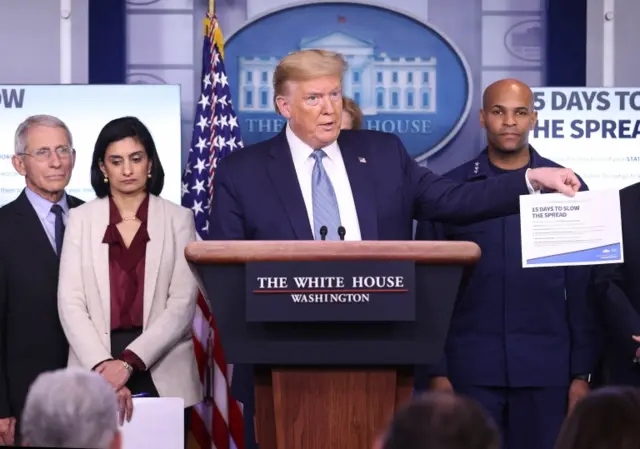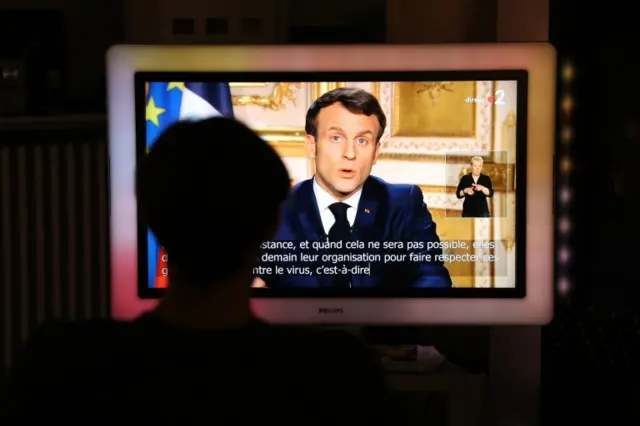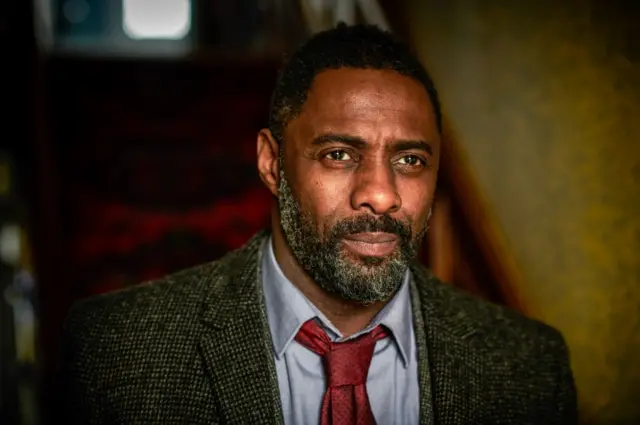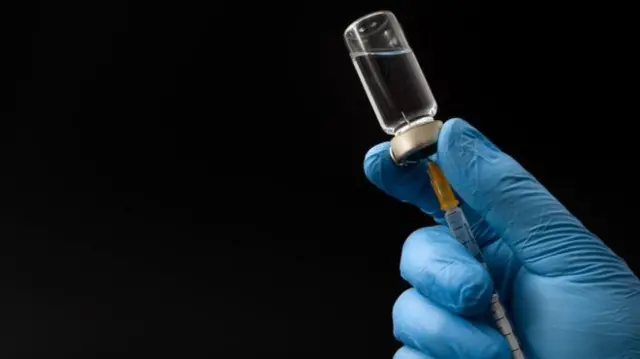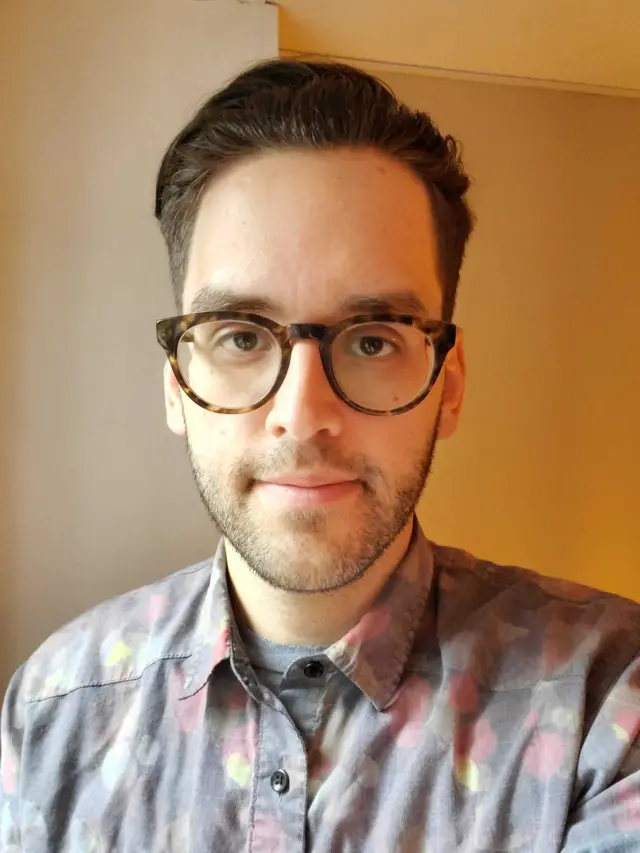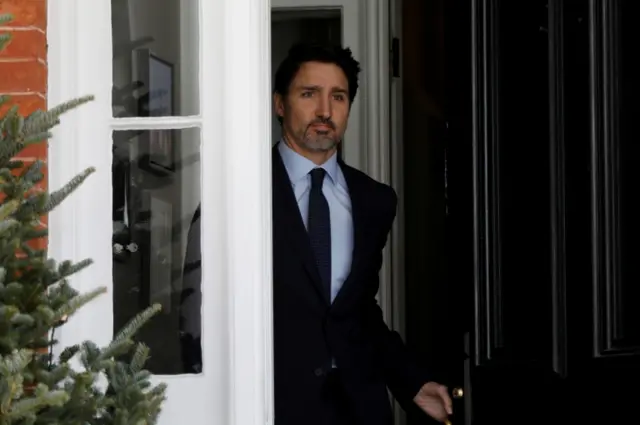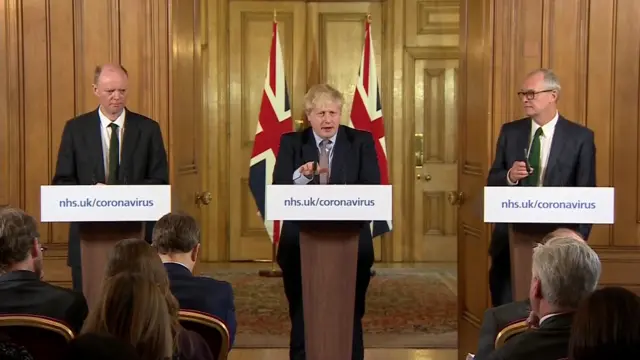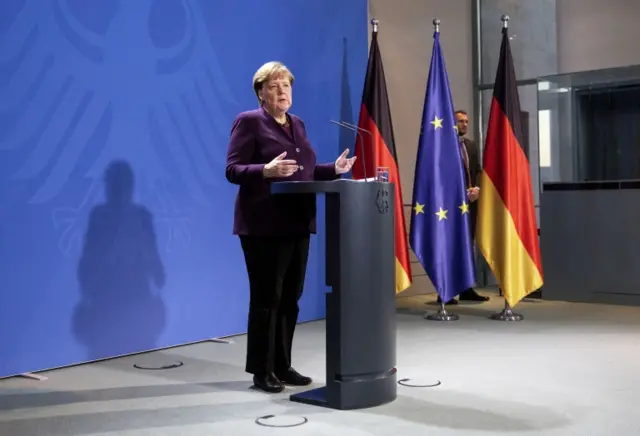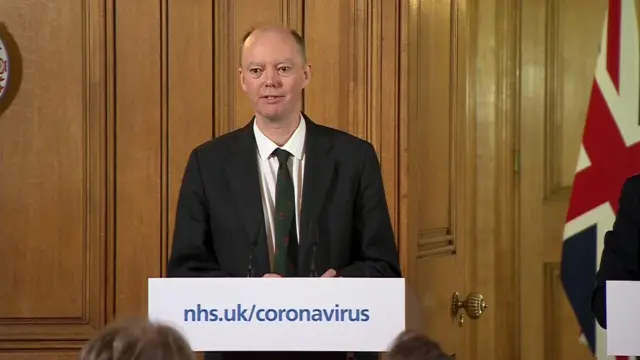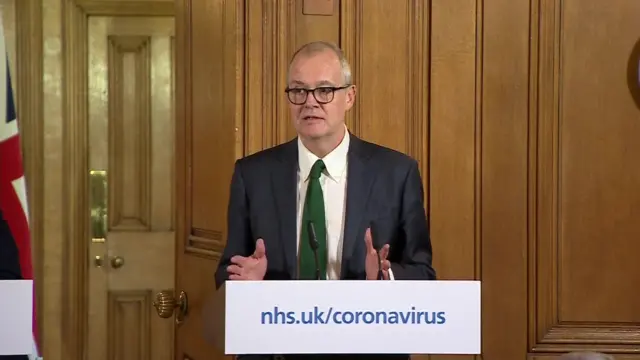European Union to shut borders - Macronpublished at 20:00 GMT 16 March 2020
In his press conference just now, the French president announced that the European Union would be closing its external borders on Tuesday.
We knew this drastic measure was set to be discussed by the EU's 27 leaders but were not expecting Mr Macron to announce it this evening.
It remains unclear if all states have formally agreed to it.
Earlier, the EU Commission chief Ursula Von der Leyen said she was proposing temporary restriction on "non-essential travel to the EU" for an initial period of 30 days.
She said EU citizens and long-term residents and their family members would be exempt, along with workers who commute across borders, those delivering goods and those involved in the fight against the coronavirus.
The UK government would not be obliged to apply the ban, and UK citizens would not be affected by it, says the BBC's Brussels correspondent Adam Fleming.
The UK has left the EU but is currently in a transition period.
Several EU states including Germany and Spain have already announced border closures with EU neighbours.
